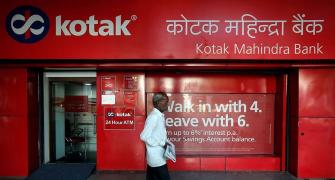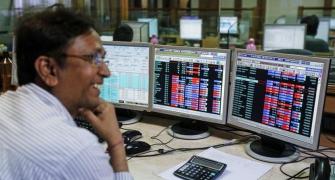Writers on the globalization of business rarely examine the question of why, if at all, business should globalize. Although there are several reasons for this omission, perhaps the most important is the widespread tendency to believe in the globalization apocalypse. This naturally renders the question moots.
Second, there may have been some crowding out. Much of what has been written about globalization from a business perspective since the late 1980s has been dominated by concerns related to how, and not why: how to link far-flung units, build global networks, find and train global managers, create truly global corporate cultures. Furthermore, to the extent that the literature does deal with global strategy as opposed to global organization, it focuses primarily on achieving global presence: entering the right global markets, making the right acquisitions, or choosing the right global alliance partners. This addresses important questions related to where and who, but still doesn't have much to say about why.
Third - and from a more practical perspective -- there is a sense that global strategic moves are so complex and so subject to uncertainty that they essentially become a matter of faith. This can be seen as a metastasis of the traditional tendency in single-country strategy to do detailed cost-benefit analyses of relatively small decisions, and to simply throw up one's hands and surrender to animal spirits in making large ones - a tendency first noted by the late C. Northcote Parkinson in one of his less famous laws.
Whatever the precise mix of reasons, executives in global or would-be global companies, when asked their reasons for globalizing, often spout slogans rather than substance. Paul Verdin and Nick Van Heck have compiled a list of these that would be funny if it didn't strike so frighteningly close to home.
Furthermore, such slogans aren't just siren songs for the unsophisticated or unwary. Recall the discussion in chapter 2 of the massive wave of foreign direct investment in electricity that began in the early 1990s, and that proved extremely unprofitable. Analysis of 264 foreign investment projects undertaken by 24 U.S. utilities between 1993 and 2002 indicates that:
= "High-status" firms (e.g., ones with current or former directors or top managers of Fortune 500 firms on their boards) were particularly prone to large-scale FDI.
= Stock analysts continued to pay more attention to high-FDI firms and to recommend purchase of their stocks through 2001.
= Stock-market reactions to FDI continued to be positive through 1998-2001-after the negative impact of FDI on reported financial results had started to become clear.
Of course, managers and the financial markets aren't the only groups whose enthusiasm may get misplaced when it comes to cross-border moves - people who write about international business are also prone to such problems. To make this point, let me simply cite three examples. Wal-Mart was, despite the considerations discussed in chapter 2, widely acclaimed as an international retailing juggernaut because of its international size and growth - until it recently started to exit some of its less successful markets.
Cemex is characterized -- in a widely used textbook on international business, as well as in many business school cases - as a leader in using information technology and catering to its distributors, even though, as we shall see in this chapter, those are far from the most important reasons for its superior profitability. And Philips, whose evolution explored in chapter 4, continued to be written about as a reasonably well-functioning example of various modish organizational models while it teetered at the edge of bankruptcy.
The common thread I all these examples is insufficient attention to the creation of economic value. What we see instead, in these and other cases, is value being ignored or analyzed superficially, survival being treated as a proxy for value creation, or a focus on trailing indicators of performance. The obvious antidote is to adapt and extend the rigorous focus on value creation that has been proven to work in single-country strategy. Although this will be accomplished with some rigor later in this chapter it will begin by illustrating the importance of a value-focused perspective.
Cemex: Creating Value Through
Cross-Border Expansion in Cement
Cement seems like a very unlikely setting for globalization. R&D-to-sales and advertising-to-sales ratios, the two leading indicators of propensity to engage in FDI, are very low. So is the product's value-to-weight ratio, which amplifies the effects of geographic distance. Furthermore, if the product gets wet during waterborne transportation-the only cost-effective way of shipping it over long distance - it becomes unusable.
Yet, despite these apparently unpromising basic conditions, global concentration in cement has increased greatly since the 1980s, when the top five competitors controlled only about 11 percent of the world market. Thanks to cross-border acquisitions, that number if now close to 25 percent, meaning that cement has experienced one of the greatest absolute increases in global concentration of any of the major industries for which I have compiled data! The cement majors, which have continued to be profitable over this period, seem to have found ways of benefiting from cross-border expansion. Of particular interest is Cemex, which had all its capacity located in Mexico through the late 1980s and didn't even figure in the top five then, but has since grown to be the third-largest competitor while maintaining the highest profitability levels of any of the majors. How has Cemex achieved superior performance, and in particular, what role has globalization played?
Volume
The most common rationale cited for crossing border - adding volume and grabbing market share -- certainly seems applicable to the Cemex case. Compare the company with another cement company headquartered in Latin America, Votorantim of Brazil. In 1988, Votorantim was slightly larger than Cemex and was the sixth-largest player in the world. Just fifteen years later, Cemex was the third-largest player, and Votorantim had slipped to tenth place. What happened in the interim?
Simply put, Votorantim diversified horizontally, going into industries such as pulp and paper, aluminum, and other metals. By contrast, Cemex diversified geographically. To some extent, Cemex had to cross borders to grow because its home market in Mexico was small - significantly smaller than Votorantim's home market in Brazil -- and because, by 1989, Cemex already controlled two-thirds of Mexican capacity. There was little room for growth at home.
However, simply adding volume doesn't explain how Cemex was able to sustain superior margins -- or, more broadly, to create value through an expansion strategy that relied on acquisitions of existing capacity in other countries. A purely scalar strategy of acquisitions does nothing, as foreign investors in the electricity sector discovered, to address the most fundamental test of value creation in international business, the so-called better-off test: does combining and coordinating activities across multiple geographies enable the unties to create and claim more value than they could as independent stand-alone operations?
Unless the answer is yes, the prospects of superior value creation through acquisitions depend on value transfer: on being able to buy assets for less than they are truly worth. This is nice business if you can get it, but it is often infeasible, especially in light of takeover premiums and transaction costs.
Excerpted from Redefining Global Strategy by Pankaj Ghemawat. Rs 1252. Reprinted by permission of Harvard Business School Press. Copyright 2007 Harvard Business School Publishing Corporation.







